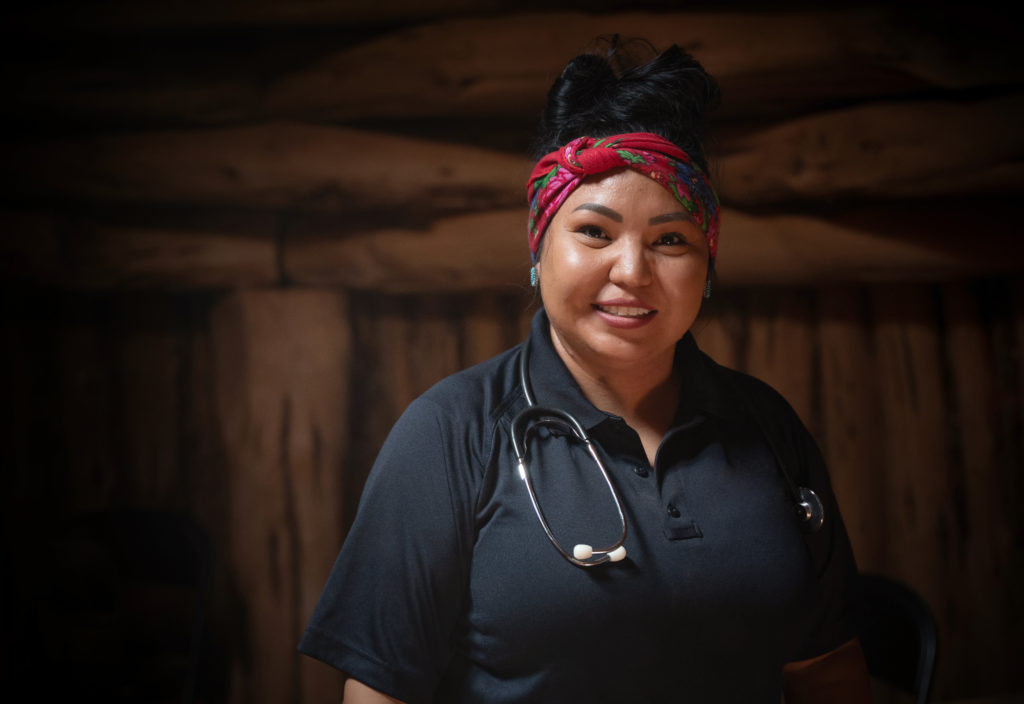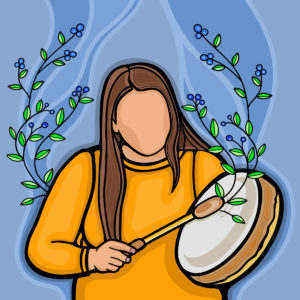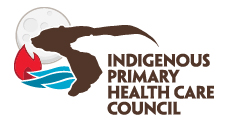About the Anishinaabe Mino’Ayaawin
– People in Good Health approach to Indigenous Cultural Safety
The Anishinaabe Mino’Ayaawin – People in Good Health is Indigenous Primary Health Care Council’s (IPHCC) approach to Indigenous Cultural Safety (ICS). This approach is a comprehensive vision of Indigenous Cultural Safety that encompasses online training courses, customized workshops, change management support, and the development of tools and resources.
- Integrates cultural awareness, sensitivity, competency, humility and safety to transform healthcare systems.
- Prepares healthcare professionals with essential skills and knowledge to create compassionate environments.
- Accounts for social and historical contexts shaping healthcare experiences.
- Addresses structural and interpersonal power imbalances.
- Aims to dismantle anti-Indigenous racism through transformative, decolonizing, and Indigenous-informed strategies.
How Indigenous Cultural Safety Can Transform Your Organization:
Improve Health Outcomes:
- Understanding the cultural context of First Nations, Inuit and Métis Peoples builds trust and fosters meaningful connections, enabling more effective care and improved health outcomes.
Build Stronger Patient Relationships:
- Establish trust-based relationships with First Nation, Inuit, and Métis peoples to ensure accurate diagnoses, effective treatment plans, and improved patient satisfaction.


Professional Growth and Responsibility:
- Expand your professional capabilities by integrating cultural safety into your practice, aligning with best practices and ethical standards in healthcare.
Contribute to Reconciliation:
- Taking our training fulfills Truth & Reconciliation Call to Action #23 (iii) which calls for cultural competency training for all healthcare professionals in Canada.
The Impact:
Gain tools to communicate more effectively with First Nations, Inuit, and Métis peoples, ensuring their perspectives and preferences are integral to their care plan.
Courses
This foundational course is the first course that officially launched under IPHCC’s Anishinaabe Mino’Ayaawin on October 27, 2021. Foundations of ICS equips healthcare professionals with essential skills and knowledge to adopt culturally safe practices. Delivered as a self-guided online course, it explores the historical and ongoing impacts of colonization and provides actionable strategies for fostering equitable and safe healthcare environments.
Key Features
- Trauma-informed and rights-based approach
- Grounded in Indigenous perspectives and lived experiences
- Practical tools for culturally safe care
To begin the registration process for the Foundations of ICS course click below
This foundational course is the first course that officially launched under IPHCC’s Anishinaabe Mino’Ayaawin on October 27, 2021. Foundations of ICS equips healthcare professionals with essential skills and knowledge to adopt culturally safe practices. Delivered as a self-guided online course, it explores the historical and ongoing impacts of colonization and provides actionable strategies for fostering equitable and safe healthcare environments.
Key Features
- Trauma-informed and rights-based approach
- Grounded in Indigenous perspectives and lived experiences
- Practical tools for culturally safe care
To begin the registration process for the Foundations of ICS course click below
The Indigenous Cultural Safety in Mental Health course provides a comprehensive understanding of mental health challenges within Indigenous Communities. It combines historical and present-day contexts with actionable and effective strategies to support culturally safe mental health practices.
Learners are strongly encouraged to complete Foundations of ICS as a prerequisite to this course.
Key Features
- Historical and contemporary mental health contexts
- Strategies for culturally safe mental health practices
- Emphasis on trauma-informed care
To begin the registration process for the ICS in Mental Health course click below
Testimonials
– Francophone and Resource Policy Lead, Alliance for Healthier Communities
– Indigenous Project Coordinator, Simcoe Muskoka Regional Cancer Program
– Indigenous Project Coordinator, Simcoe Muskoka Regional Cancer Program on Foundations of Indigenous Cultural Safety course
– Foundations of Indigenous Cultural Safety Learner"
– Francophone and Resource Policy Lead, Alliance for Healthier Communities on Foundations of Indigenous Cultural Safety course
Upcoming Courses:
IPHCC continuously updates and refines our program to stay at the forefront of ICS education. The following are in development, keep an eye out for the launch of the following courses:
- Bioethics: Co-designed using the Two-Eyed Seeing approach which aims to equip healthcare workers across all sectors of care with the tools and resources to incorporate Indigenous perspectives and Traditional Healing strategies within patient care pathways.
- Trauma-Informed Perspectives on Honouring Resilience and Addressing the Legacy of Residential Schools (IRS-Trauma Informed Training): Provides a comprehensive understanding of the impacts of the Indian residential school system.
- Etuaptmumk-Builiding Equitable, Integrated Health Care using the Two-Eyed Seeing Approach: This course emphasizes the importance of respecting Indigenous individuals who choose Traditional Healing methods. It aims to foster healthcare by integrating the Etuaptmumk approach, offering culturally appropriate and wholistic options.
Customized Training Workshops
Our Customized workshops provide practical tools and essential knowledge to create culturally safe healthcare environments. Designed to meet your organization’s unique needs, they foster open dialogue and active engagement, empowering participants to better serve First Nations, Inuit, and Métis peoples with empathy, dignity, and respect.
Available Workshops:
Abstract: This foundational workshop delves into the principles of Indigenous Cultural Safety (ICS), emphasizing its significance as a lifelong commitment essential for effective health service delivery. Participants will explore the content of cultural safety, grounded in a trauma-informed and rights-based framework, and understand how it seeks to achieve health equity. The workshop also examines the historical and ongoing impacts of colonization on the health and well-being of Indigenous peoples. By engaging with diverse Indigenous perspectives, participants will leave with a deeper understanding of what culturally safe care looks like and how it can be implemented in their practice.
Learning Outcomes:
- Define Indigenous Cultural Safety (ICS) and articulate its importance in health service delivery
- Apply a trauma-informed and rights-based approach to ICS
- Identify the goal of ICS in achieving health equity, recognizing the culturally safe care is defined by Indigenous peoples
- Describe the impacts of colonization on the health and well-being of Indigenous peoples, including contemporary forms of colonial violence
- Demonstrate an understanding of the legacy of Indian residential schools and its impacts on intergenerational trauma
- Describe what ICS can look like from the perspective of Indigenous people with a variety of intersecting identities
This foundational workshop delves into the principles of Indigenous Cultural Safety (ICS), emphasizing its significance as a lifelong commitment essential for effective health service delivery. Participants will explore the content of cultural safety, grounded in a trauma-informed and rights-based framework, and understand how it seeks to achieve health equity. The workshop also examines the historical and ongoing impacts of colonization on the health and well-being of Indigenous peoples. By engaging with diverse Indigenous perspectives, participants will leave with a deeper understanding of what culturally safe care looks like and how it can be implemented in their practice.
Learning Outcomes:
- Define Indigenous Cultural Safety (ICS) and articulate its importance in health service delivery
- Apply a trauma-informed and rights-based approach to ICS
- Identify the goal of ICS in achieving health equity, recognizing the culturally safe care is defined by Indigenous peoples
- Describe the impacts of colonization on the health and well-being of Indigenous peoples, including contemporary forms of colonial violence
- Demonstrate an understanding of the legacy of Indian residential schools and its impacts on intergenerational trauma
- Describe what ICS can look like from the perspective of Indigenous people with a variety of intersecting identities
This workshop explores the vital role that traditional healing practices and wholistic health approaches play in the well-being of Indigenous peoples. Participants will gain insights into the significance of traditional healers, Elders, Knowledge Keepers, and the use of traditional medicines and ceremonies. The workshop highlights how these practices are currently being integrated into health service delivery, contributing to improved health outcomes for Indigenous clients. Through this exploration, participants will better understand how cultural approaches to wellness are central to healing within Indigenous communities, offering a pathway to enhanced culturally safe care.
Learning Outcomes:
- Describe the role and significance of traditional healing practices in Indigenous health and wellness
- Acknowledge the contributions of Elders, Knowledge Keepers, and traditional healers in promoting health and well-being within Indigenous communities
- Identify the ways in which colonial violence and intergenerational trauma manifest in Indigenous communities
- Explain how traditional healing practices are being incorporated into modern health service delivery to improve outcomes for Indigenous clients
- Recognize the central role of Indigenous cultural in healing and wellness
This workshop provides participants with the knowledge and skills necessary to develop meaningful and respectful partnerships with Indigenous communities. By examining the barriers that mainstream organizations often face when engaging with Indigenous populations, participants will learn how to overcome these obstacles and build equal partnerships that meaningfully incorporate Indigenous perspectives into program and policy decisions. The workshop emphasizes the importance of cultural safety, trauma-informed practices, and Indigenous sovereignty in relationship-building, equipping participants to work collaboratively with Indigenous organizations in a manner that fosters trust and respect.
Learning Outcomes:
- Identify the barriers that mainstream organizations face in engaging with Indigenous communities
- Develop strategies to overcome these barriers and build respectful, equal partnerships with Indigenous organizations
- Recognize the importance of integrating Indigenous perspectives into policy and program decisions that affect Indigenous populations
- Apply culturally safe and trauma-informed practices in relationship-building efforts
- Understand the significance of Indigenous sovereignty and the role of Indigenous-led organizations in serving their communities
This workshop is designed to educate participants on the significance land acknowledgements. Far from being mere formalities, land acknowledgements are vital for recognizing the historical and ongoing presence of Indigenous peoples and for fostering respect and understanding. Participants will learn how to distinguish between traditional and treaty lands, identify relevant stakeholders, and craft a personal connection to the land in their acknowledgements. Through practical exercises, participants will draft their own meaningful land acknowledgements, informed by a deeper understanding of their relationship with Indigenous communities.
Key Components of the Workshop:
- Introduction and Context: It emphasizes the importance of recognizing the historical and ongoing presence of Indigenous peoples, stressing that land acknowledgements are not mere formalities but are vital for building respect and understanding.
- Developing a Land Acknowledgement: A: Determine the Type of Land: Participants are taught to distinguish between traditional and treaty lands using resources like the Ministry of Indigenous Affairs’ Treaty Map. B: Identify Stakeholders: The acknowledgement should consider the local First Nations, Inuit, and Métis communities. C: Personal Connection: Encourages the speaker to share personal connections to the land, fostering a more profound respect and personal engagement with the acknowledgement.
- Practical Application: A: Participants are guided through the process of drafting their own land acknowledgement by reflecting on their relationship with the land and the Indigenous communities associated with it. B: The workshop includes a “Safe Space” policy to encourage open discussion and questions, ensuring participants feel comfortable and supported in learning how to provide culturally safe care.
In this workshop, participants will engage with the pressing need to confront and dismantle racism within healthcare systems, particularly as it affects Indigenous peoples. The training will focus on understanding how stereotypes, implicit biases, and discrimination impact the quality and accessibility of healthcare for Indigenous communities. Participants will reflect on their personal and professional commitments to anti-racism and develop strategies to implement these principles in their workplaces. The workshop aims to equip participants with the critical consciousness and practical skills needed to provide culturally safe care while actively challenging systemic racism in health systems.
Learning Outcomes:
- Reflect on personal and professional commitments to implementing anti-racism strategies in the workplace
- Develop a stronger understanding of how stereotypes, implicit biases, and discrimination impact the quality and accessibility of healthcare for Indigenous peoples
- Cultivate the critical consciousness necessary to recognize and address power imbalances in healthcare systems
- Implement culturally safe practices that confront and dismantle racism in health service delivery
- Engage in continuous learning and self-reflection to support Indigenous Anti-Racism efforts
This workshop focuses on the ethical and culturally appropriate conduct of research involving First Nations, Inuit, and Métis (FNIM) communities. Participants will learn about the historical context of research involving Indigenous peoples, including the negative impacts of past methodologies, and the importance of adhering to principles of respect, relevance, reciprocity, and responsibility. The workshop will explore Indigenous data sovereignty, highlighting how Indigenous-led organizations are protecting, using, and sharing data in ways that respect the rights and knowledge systems of FNIM communities. Participants will leave with a better understanding of how to engage in research that supports Indigenous self-determination and advances community well-being.
Learning Outcomes:
- Understand the historical context and impact of research practices on Indigenous communities, including research trauma and data sovereignty
- Apply the principles of respect, relevance, reciprocity, and responsibility in conducting research with Indigenous communities
- Recognize the importance of Indigenous-led research and data governance in protecting the rights and knowledge of First Nations, Inuit, and Métis (FNIM) populations
- Identify and implement culturally safe research methodologies that align with Indigenous knowledge systems
- Explore strategies for integrating Indigenous data sovereignty principles into research practices
This innovative workshop introduces participants to Indigenous bioethics, an emerging field that integrates traditional Indigenous knowledge with contemporary bioethical practices in healthcare. Developed in partnership with Indigenous Knowledge Keepers and bioethicists, this curriculum is tailored to the Ontario context and addresses the unique challenges faced by First Nations, Métis, and Inuit (FNMI) peoples in the healthcare system. Participants will explore the seven sacred values—courage, honesty, humility, respect, truth, love, and wisdom—as a framework for ethical decision-making. The workshop aims to empower healthcare providers to incorporate Indigenous bioethics into their practice, ultimately fostering safer and more culturally responsive healthcare environments.
Three Questions that are Identified in this training:
- Do we ignore those parts of society where institutional information, research, and data do not exist?
- If the data or research does not exist, does it mean those are not issues in greater society?
- Is it ethical for system leaders to ask the most vulnerable to validate their voices and experiences without ensuring they have the proper tools and resources to do so or to forge ahead? Or do we take collective action to change this disparity? Do we view this as a priority?
Learning Outcomes:
- Understand the foundational concepts of Indigenous bioethics and its application in healthcare settings
- Explore the seven sacred values and their role in ethical decision making
- Recognize the challenges and successes of First Nations, Inuit, and Métis (FNIM) peoples within the healthcare system from a bioethical perspective
- Apply Indigenous bioethics principles to create culturally safe and responsive healthcare environments
- Engage in cross-cultural and interprofessional learning to enhance Indigenous bioethics competencies
This workshop offers a comprehensive exploration of the social determinants of health (SDOH) from an Indigenous perspective. Participants will examine how factors such as colonization, racism, and cultural connection influence the health outcomes of First Nations, Inuit, and Métis (FNIM) communities. The workshop emphasizes the importance of understanding these determinants through an Indigenous lens, which includes recognizing protective factors like cultural continuity and self-determination. Through interactive exercises, participants will learn how to apply the Indigenous SDOH model in their work, aiming to address health inequities and improve outcomes for FNIM populations.
Learning Outcomes:
- Identify the social determinants of health (SDOH) that disproportionately affect First Nations, Inuit, and Métis (FNIM) communities
- Understand the impact of colonization and racism as root causes of health inequities in Indigenous populations
- Recognize protective factors, such as connection to culture, land, and self-determination, that contribute to positive health outcomes
- Apply the Indigenous SDOH model in health service delivery to address inequities and improve health outcomes for FNIM populations
- Explore strategies to incorporate Indigenous perspectives on SDOH into policy and practice
This workshop introduces participants to the Misiway Innuweuk framework, an Indigenous-led accreditation model designed to support Traditional Healing (TH) programs. Recognizing the challenges faced by Traditional Practitioners, including a lack of structured credentialing processes and inequities in professional recognition, this framework seeks to establish culturally grounded standards for TH practices. Participants will explore how this framework can strengthen the safety, quality, and effectiveness of TH services, ensuring that they meet the unique needs of Indigenous clients. The workshop provides insights into the development of Indigenous-led accreditation processes that honor traditional knowledge while aligning with contemporary healthcare expectations.
Learning Outcomes:
- Understand the need for a culturally grounded accreditation framework to support Traditional Healing (TH) programs
- Identify the challenges faced by Traditional Practitioners, including the absence of credentialing processes and inequities in professional recognition
- Explore the components of the Misiway Innuweuk framework, including credentialing, mentorship, cross-sectoral collaboration, and equitable recognition
- Apply the framework to strengthen the safety, quality, and effectiveness of TH services
- Recognize the importance of Indigenous-led accreditation processes that honor traditional knowledge and align with contemporary healthcare standards
This workshop aims to shift the narrative around Indigenous mental health from a deficit-based approach to one that emphasizes strengths and protective factors. Participants will explore how colonization and current-day racism contribute to poor mental health outcomes in Indigenous communities, but also how connection to culture, land, and self-determination can serve as protective factors. The workshop encourages participants to consider alternative indicators for measuring mental health, focusing on strengths rather than deficits. Through interactive discussions and exercises, participants will develop strategies for implementing a strengths-based approach to Indigenous mental health in clinical settings.
Learning Outcomes:
- Connect the root causes of colonization and racism to mental health outcomes in Indigenous communities
- Recognize the importance of protective factors, such as cultural continuity and self-determination, in promoting mental health and wellness
- Shift from a deficit-based approach to a strengths-based view of Indigenous mental health.
- Explore alternative indicators for measuring mental health that emphasize strengths and protective factors
- Develop strategies for implementing a strengths-based approach to Indigenous mental health in clinical settings
This workshop underscores the critical role of culture as a healing force in improving health outcomes for Indigenous peoples. Participants will learn about the Model of Wholistic Health and Wellbeing and how it can be incorporated into public health programming. The workshop provides a historical overview of the impacts of colonization and anti-Indigenous racism, and encourages participants to reflect on how these factors continue to influence Indigenous health today. Through guided discussions and practical exercises, participants will explore opportunities to integrate Traditional Healing practices into their work, with the goal of creating more culturally responsive and effective public health programs.
Learning Outcomes:
- Explain the root causes of lower life expectancy and poor health outcomes among Indigenous populations
- Understand the Model of Wholistic Health and Wellbeing and its significance in Indigenous health
- Recognize the importance of Culture as Healing in improving health outcomes for Indigenous peoples
- Explore opportunities to integrate Traditional Healing practices into public health programming
- Develop strategies for incorporating cultural considerations into health service delivery to meet the unique needs of Indigenous clients
To inquire about workshops:
Organizational Change Support
The IPHCC has developed a framework to support organizations in addressing cultural safety through meaningful and sustainable organizational change initiatives.
- Purpose: Assists health organizations in evaluating policies, procedures, and practices to uncover pathways toward culturally safe environments for First Nations, Inuit, and Métis peoples.
- Leadership Engagement: Encourages leadership to champion equity, foster accountability, and prioritize long-term, sustainable change.
- Beyond Assessment: Represents a commitment to actionable change by addressing systemic inequities and acknowledging past harms.
- Comprehensive Support: Promotes a healthcare culture that respects diverse cultural identities and works towards reconciliation.
To inquire about Organizational Change Support:
Call To Action
Ready to make meaningful change? Begin your journey toward culturally safe care today. Explore our comprehensive approach to cultural safety, including training, workshops, organizational support, and other initiatives to drive meaningful change and lead by example in building an inclusive, respectful, and effective healthcare system.

MIIGWECH | THANK YOU
The IPHCC extends its deepest gratitude to all those who contribute to the ongoing development of Anishinaabe Mino’Ayaawin. We sincerely thank our Knowledge Keepers Circle, Indigenous people with lived experience, and IPHCC members from across Ontario for their invaluable guidance, dedication, and unwavering support. Your commitment inspires our work and ensures its continued impact and relevance in fostering culturally safe healthcare environments.
